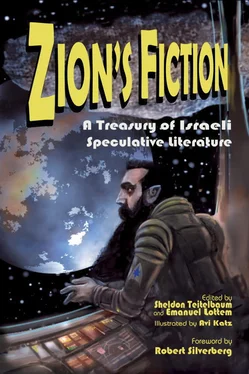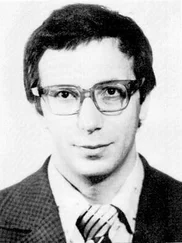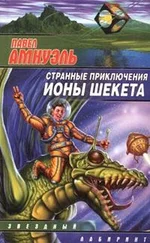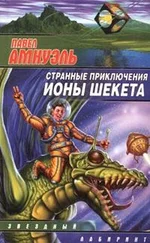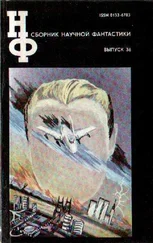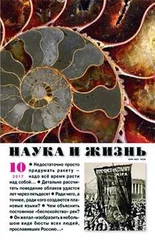The boy was interfacing with his aug, he realized. The words coming in a rush, he said, “You had no parents,” to the boy. Recollection and shame mingling together. “You were labbed, right here, hacked together out of public property genomes and bits of black market nodes.” The boy’s hold on his mind slackened. Boris breathed, straightened up. “ Nakaimas ,” he said, and took a step back, suddenly frightened.
The woman looked terrified and angry. “Stop it,” she said. “He’s not—”
Boris was suddenly ashamed. “I know,” he said. He felt confused, embarrassed. “I’m sorry.” This mix of emotions, coming so rapidly they blended into each other, wasn’t natural. Somehow the boy had interfaced with the aug, and the aug, in turn, was feeding into Boris’s mind. He tried to focus. He looked at the woman. Somehow it was important to him that she would understand. He said, “He can speak to my aug. Without an interface.” Then, remembering the clinics, remembering his own work before he left to go to space, he said, quietly, “I must have done a better job than I thought, back then.”
The boy looked up at him with guileless, deep blue eyes. Boris remembered children like him, he had birthed many, so many—the clinics of Central Station were said to be on par with those of Yunan, even. But he had not expected this, this interference, though he had heard stories, on the asteroids and in Tong Yun, the whispered word that used to mean black magic: nakaimas .
The woman was looking at him, and her eyes, he knew her eyes—
Something passed between them, something that needed no node, no digital encoding, something earlier, more human and more primitive, like a shock, and she said, “Boris? Boris Chong?”
He recognized her at the same time she did him, wonder replacing worry, wonder, too, at how he failed to recognize her, this woman of indeterminate years suddenly resolving, like two bodies occupying the same space, into the young woman he had loved, when the world was young.
“Miriam?” he said.
“It’s me,” she said.
“But you—”
“I never left,” she said. “You did.”
He wanted to go to her now. The world was awake, and Boris was alone on the roof of the old apartment building, alone and free, but for the memories. He didn’t know what he would do about his father. He remembered holding his hand, once, when he was small, and Vlad had seemed so big, so confident and sure, and full of life. They had gone to the beach that day; it was a summer’s day, and in Menashiya Jews and Arabs and Filipinos all mingled together, the Muslim women in their long, dark clothes and the children running shrieking in their underwear; Tel Aviv girls in tiny bikinis, sunbathing placidly; someone smoking a joint, and the strong smell of it wafting in the sea air; the lifeguard in his tower calling out trilingual instructions—“Keep to the marked area! Did anyone lose a child? Please come to the lifeguards now! You with the boat, head towards the Tel Aviv harbor and away from the swimming area!”—the words getting lost in the chatter; someone had parked their car and was blaring out beats from the stereo; Somali refugees were cooking a barbecue on the promenade’s grassy area; a dreadlocked white guy was playing a guitar, and Vlad held Boris’s hand as they went into the water, strong and safe, and Boris knew nothing would ever happen to him—that his father would always be there to protect him, no matter what happened.

The news of the decision to close the Preserves was undoubtedly the worst I had ever received. I’d known for months that it was liable to happen, but I’d deluded myself into thinking that I had more time. There had always been controversy about the need for maintaining Preserves (see B. L. Sanders, Z. Goroshovski, and Cohen and Cohen), but from this remote region I was simply unable to keep abreast of all the political ups and downs. Information got through, but to evaluate its importance, to register the emerging trends, without hearing what people were actually saying in the corridors of power was impossible. So I can’t blame myself if the final decision came as a shock.
The axe fell suddenly. At six in the evening, when I got out of the shower, I found the announcement on my computer. It was just four lines long. I stood there, with a towel wrapped around my waist, reading the words that destroyed my future, that tossed away a professional investment of more than fifteen years. I can’t say that I’d never envisioned this possibility when I chose to study the Slows. I can’t say that it hadn’t occurred to me that this might happen. But I believed that I was doing something important for the human race, and, mistakenly, I thought that the authorities felt the same way. After all, they had subsidized my research for years. Eliminating the Preserves at this stage was a loss I could barely conceive of, a loss not only for me and for my future—clearly I couldn’t avoid thinking about myself—but for humanity and its very ability to understand itself. Politicians like to refer to the Slows as being deviant. I won’t argue with that, but as hard as it is, as repulsive and distressing, we have to remember that our forefathers were all deviants of this kind.
I confess that I passed the rest of the evening with a bottle of whiskey. Self-pity is inevitable in situations like this, and there’s no reason to be ashamed of it. The whiskey made it easier for me to get through the first few hours and fall asleep, but it certainly didn’t make it any easier to get up in the morning. As if to spite me, the sky was blue, and the light was too brilliant. As often happens in this season, the revolting smell of yellow flowers went straight to my temples. When I pulled myself out of bed, I discovered that the sugar jar was empty, and I’d have to go to the office for my first cup of coffee. I knew that at some point during the day I would have to start packing up, but first I needed my coffee. I had no choice. With an aching head and a nauseating taste in my mouth, I dragged myself to the office shed. I opened the door and found a Slow woman sitting in my chair.
Despite the security guards’ repeated instructions, I tended to forget to lock doors. Our camp was fenced in, we all knew one another, and the savages entered only during working hours, and then only with permission. How had she sneaked in?
Years of fieldwork had taught me how to cope with all sorts of situations. “Good morning,” I said to her. I didn’t even consider reaching for the button to call the guards. True, there had been occasional attacks in other camps, but for all sorts of reasons there had been none in ours to date. Besides, as I always said, the people most likely to be attacked were the policemen and the missionaries, not me, so I had a logical justification for bending the rules a little.
The savage woman didn’t answer me. She leaned over to pick something up from the other side of the desk, and immediately I became afraid. The fear spread rapidly from my legs to my chest, but my brain kept working. So the rumor was true: they had got their hands on a cache of old weapons. To them, perhaps we were all alike after all—policeman or scientist, it didn’t matter much from their point of view. But then the woman turned back to me: she was holding a human larva strapped into a carrier, which she laid on the table.
“You promised you wouldn’t take our babies from us,” she said in the angry, agitated voice so typical of the Slows. As my adrenaline level fell, it was hard for me to steady my legs. The savage woman fixed me with her black eyes and seemed to see this. “You pledged that you wouldn’t take them. There are treaties, and you signed them,” she spat out impatiently. I was always amazed by how fast news reached the Slows. It was clear to anybody who worked with them that they were hiding computers somewhere, and perhaps they also had collaborators on the political level. The nearest settlement of Slows was a half-hour flight away. They weren’t allowed to keep hoverers, and there were no tracks in the region, so to get to our camp she had to have set out the evening before. It seemed that she had known about the decision to close the Preserves even before I did.
Читать дальше
